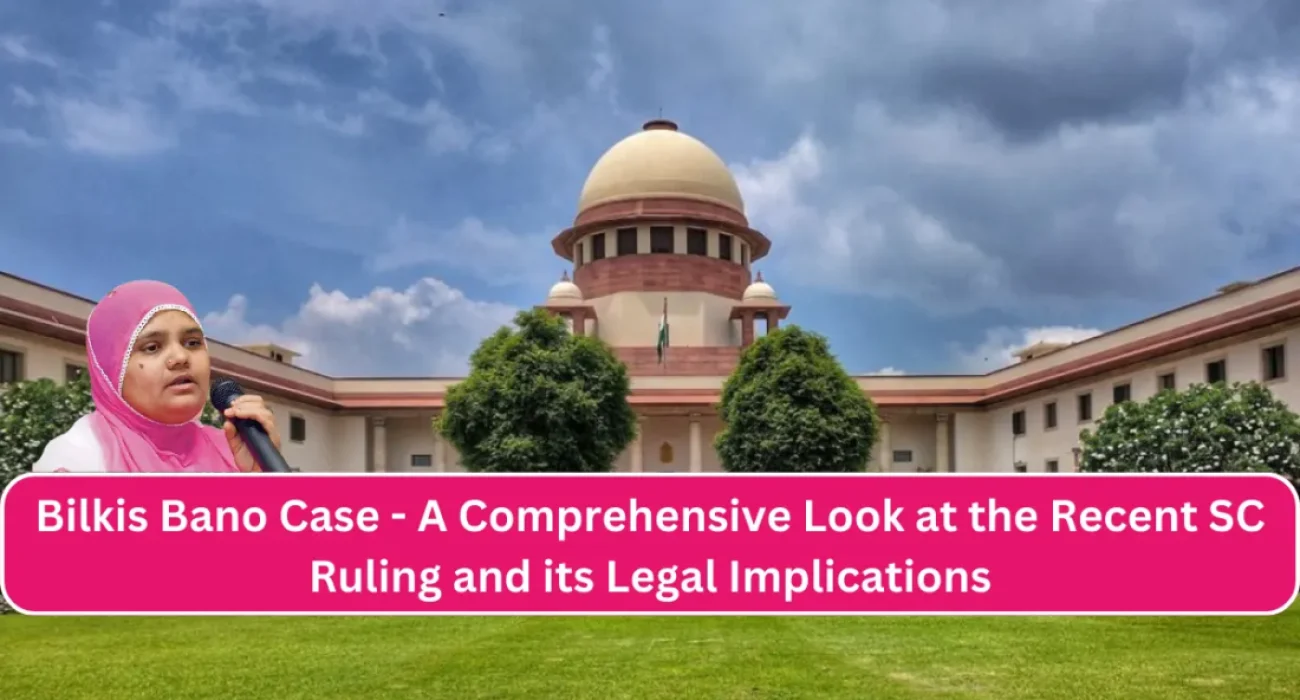

Introduction:
The Bilkis Bano case, marred by the horrific events of March 2002, witnessed the gang rape of Bilkis and the brutal killing of 14 of her family members during the Gujarat communal riots. Over the years, the legal journey unfolded with twists and turns, leading to a recent landmark ruling by the Supreme Court. This article delves into the timeline of events, the 8th of January 2024 Supreme Court ruling, notable observations from the judgment, and its implications.
Timeline of Events:
The tragedy began on February 28, 2002, when Bilkis and her family fled Randhikpur after communal riots erupted following the Godhra train burning. On March 3, 2002, Bilkis, five months pregnant, endured a brutal gang rape, and 14 of her family members were killed by a mob. Subsequent police responses and investigations were marked by irregularities, with attempts to close the case and shift the probe.
Bilkis, approached the Supreme Court in April 2003, seeking a CBI investigation. The apex court, in December 2003, ordered the transfer of the investigation to the CBI. The probe revealed shocking details during the exhumation of bodies in February 2004, leading to the filing of charges against 20 accused, including police officers and doctors.
The case was shifted from Gujarat to Mumbai in August 2004, where a Special Judge passed a verdict on January 21, 2008. Eleven individuals were convicted to life imprisonment for murder and rape, while seven were acquitted. Appeals were filed, and the legal battle continued into 2016 when the Bombay High Court began hearing appeals. In May 2017, the High Court upheld life imprisonment for the convicted and set aside the acquittal of seven individuals under various sections of the IPC.
Recent SC Ruling:
The recent Supreme Court ruling, dated January 8, 2024, revolves around the remission granted to 11 convicts by the Gujarat government in August 2022. The convicts, serving life imprisonment for their roles in the 2002 atrocities, were released on Independence Day. Bilkis Bano challenged this remission through a writ petition.
The Supreme Court, while quashing the remission, criticized the Gujarat government for acting in tandem with one of the convicts who had moved the court for the consideration of his premature release. The bench, comprising Justices BV Nagarathna and Ujjal Bhuyan, declared that the State of Gujarat was not the ‘appropriate government’ to decide on remission due to the trial having been transferred to Maharashtra. The court also highlighted the ‘usurpation of power’ and ‘abuse of discretion’ by the Gujarat government in prematurely releasing the convicts.
Apex Court’s Observation:
The Supreme Court, in its observations, condemned the Gujarat government for not filing a review petition challenging the court’s May 2022 order, which held the state as the ‘appropriate government’ for considering remission. The court accused the state of acting in tandem with the convict, Radheshyam Shah, and criticized its complicity with his objectives.
Justice Nagarathna emphasized the breach of the rule of law, stating, “This is a classic case where the May 2022 order has been used for violating the rule of law while passing orders of remission in favour of the convicts, in the absence of any jurisdiction by the respondent state.” The court deemed the order obtained by Shah as a ‘nullity’ due to fraud and misrepresentation of facts, leading to an illegal exercise of power by the state.
Conclusion:
The Bilkis Bano case stands as a symbol of justice sought against heinous crimes. The recent Supreme Court ruling not only annulled the remission but also shed light on the conduct of the State, accusing it of complicity and abuse of discretion. This landmark judgment underscores the importance of upholding the rule of law, ensuring that justice prevails even in the face of challenges and attempts to circumvent legal processes.
-By Adv. Deeksha Rai
IAW resources
Browse our help directory